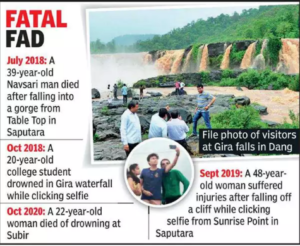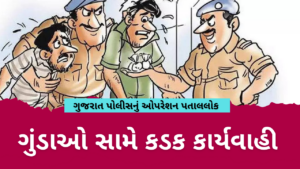Scroll through your phone gallery or social media wall, check the total number of selfie and calculate the score of narcissism. While those self- taken pictures are definitely going to make you revisit your memories as much as they are going to fixate you with the likes, shares and forwards.
Smartphones have made it simpler to shoot and send images at any time, and social media has encouraged the practise of sharing photos, which has naturally led to the emergence of the selfie culture. The “selfie phenomenon” has generated a great deal of controversy. Let’s take a look at the records.
The Indian Record
In the past two years, the country has had a considerably greater number of selfie-related fatalities than any other nation in the globe. This is what researchers from Carnegie Mellon University and the Indraprastha Institute of Information in Delhi discovered in 2016.
 The analysis – provocatively titled Me, Myself and My Killfie: Characterizing and Preventing Selfie Deaths – found that of 127 reported selfie deaths from March 2014 to September,” a whopping 76 deaths occurred in India alone!”
The analysis – provocatively titled Me, Myself and My Killfie: Characterizing and Preventing Selfie Deaths – found that of 127 reported selfie deaths from March 2014 to September,” a whopping 76 deaths occurred in India alone!”
Indian selfie-takers lost their lives while posing in front of speeding trains, in overturned boats during picnics, on crumbling cliffs that fell down 60-foot into a valley, and on the slick edge of picturesque canals.
Selfie: A criminal offence in South Gujarat’s Dang
In an effort to reduce accidents caused by such activities, taking selfies has been considered a criminal violation in Gujarat’s Dang district, a prominent tourist destination which is known for its waterfalls and the lovely hill station Saputara.

The billboards and hoardings warning tourists against snapping pictures at popular tourist locations have been put up by the district authorities. A guy was killed in Saputara in July 2018 after falling down a valley while taking a selfie. In addition, according to accounts, a person drowned in the adjacent Gira waterfalls in August 2018 while taking a selfie.
Selfie culture has spread quickly over the world and is not specific to any one region or culture. Selfies are probably here to stay for the foreseeable future now that they have ingrained themselves into our social structure. As a result, it is important to think about the cultural forces that led to this phenomena and the long-term implications that will follow for both people and societies.
Documenting Self
For many people, self-documentation is a crucial and priceless life skill. Selfies have considerably increased this option, which is being used since many years to record major events or milestones in a person’s life. More people than ever before have photographic records of their lives.
On the other hand, snapping too many selfies can make you less mindful and in the moment. You might not be as committed in enjoying things if you are overly concerned about capturing the moment rather than actually experiencing it.
Lessens Memory Span?
 Self-documentation might have a detrimental effect on your memory. In a study done at Princeton University, it was discovered that people who attempted to record, write down, or share an event did not remember it as well as the other participants did. According to the study’s findings, the act of externalising the event can impair your capacity to store it in memory.
Self-documentation might have a detrimental effect on your memory. In a study done at Princeton University, it was discovered that people who attempted to record, write down, or share an event did not remember it as well as the other participants did. According to the study’s findings, the act of externalising the event can impair your capacity to store it in memory.
Furthermore, as was already mentioned, taking a lot of selfies may cause you to lose touch with reality. Your focus may stray from the experience itself if you are constantly considering or snapping your next selfie.
Self- Esteem and Image
Even though you might be taking and sharing selfies for good reasons, other people’s reactions could make the experience unpleasant. Selfies on social media can expose you to negativity because you have no control over other people’s responses.
 Additionally, taking selfies might contribute to having a negative self-image or possibly be a symptom of it. Selfies can lead to unhealthy obsessions with looks to a few. If you find that selfies have a negative rather than a good effect on your self-esteem, it is important to concentrate on enhancing your self-image.
Additionally, taking selfies might contribute to having a negative self-image or possibly be a symptom of it. Selfies can lead to unhealthy obsessions with looks to a few. If you find that selfies have a negative rather than a good effect on your self-esteem, it is important to concentrate on enhancing your self-image.
If you try to compare yourself to others or social media influencers, selfies may make you feel bad about yourself even more. Remember that those influencers are presented well as they work in a professional setting. They frequently put a lot of time, money, and effort into things like fitness and photo retouching in addition to being inherently attractive. Additionally, it is not unusual for them to choose to have procedures like liposuction, stomach tucks, rhinoplasty, and breast augmentation.
Social Connectivity
We can stay in touch with the people in our lives more readily by sharing and appreciating images. Additionally, posting images can encourage us to communicate with these people more frequently, helping us maintain our ties with them. The sharing of images can be a useful technique for casually sustaining relationships because sharing a photo or commenting on one is a far less strenuous social transaction than a more organised social encounter.
 Selfies can also be a means of meeting new people and communicating with them. For example, an enthusiastic rock climber might upload a selfie to a forum dedicated to the sport, where others might start interacting by remarking on their equipment or inquiring about the location.
Selfies can also be a means of meeting new people and communicating with them. For example, an enthusiastic rock climber might upload a selfie to a forum dedicated to the sport, where others might start interacting by remarking on their equipment or inquiring about the location.
For instance, a travel blogger might take a photo at the destination they are reviewing to upload online. A social media influencer’s contract can specify that they must upload a specified number of photographs on Instagram each week. Selfies can also be utilised as a networking tool for the workplace. Someone in your industry might notice a picture of you at a trade fair you posted on your timeline, which could lead to a professional connection.





